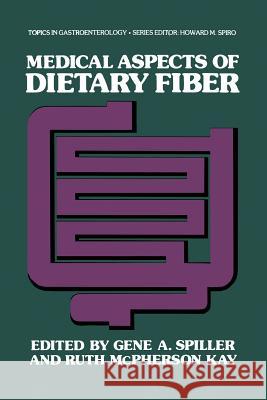Medical Aspects of Dietary Fiber » książka
Medical Aspects of Dietary Fiber
ISBN-13: 9781461591788 / Angielski / Miękka / 2012 / 300 str.
Dietary therapy has always been important to medical practice even if it has more often been sacramental than physiological in effect. "You are what you eat" meant a lot to primitive tribes whose new leader had to eat part of his predecessor, and giving diets brought out the priest in the physician even if he or she had heard that "nothing that enters into a man defiles a man. " What people eat began to take on new meaning, however, a generation ago when Schoenheimer and others made clear that body fat and muscle protein were not the sluggish unchanging masses they had appeared but instead were store- houses of energy and material influenced by food, activity, and metabolic pro- cesses. Fiber, or residue as it was then still called, however, seemed unimpor- tant; even the gastroenterologist concerned with keeping the bowels open by three cooked fruits, three cooked vegetables, and twelve glasses of water each day sometimes felt like a shaman if his cure for constipation worked. Nobody any longer read Arbuthnot Lane's charming Victorian book, The Way Out, which placed the blame for most human ailments on constipation; Lane even removed the bowel to cure the costive ills. Burkitt revived a scientific interest in fiber and the possible connection between diet. constipation, and many physical disorders by observing the vol- ume and frequency of stools on an African diet and on an English diet.











